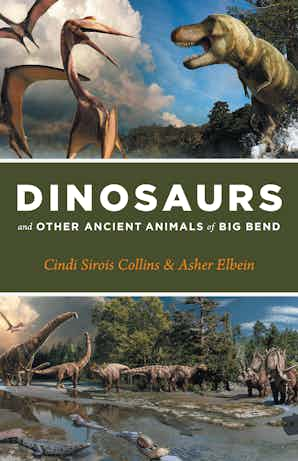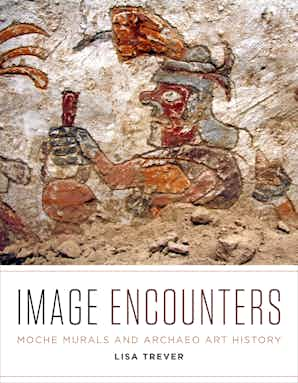Every week, our wonderful publicity team tracks the cross-platform media coverage our authors and their books receive. We’re proud to share our latest and greatest highlights below with links to where you can read more about these great titles!
Springtime has been treating us well at UT Press and we are proud to say the same for our books. Check out some extensive and diverse media coverage below from a very wide range of subject areas and publications.
Music
Allyson McCabe, author of Why Sinéad O’Connor Matters, wrote a piece for Vulture titled, “I’m Giving Up My Rock Hall Vote,” in which she revealed herself as one of the secret voters for the Rock and Roll Hall of Fame, and subsequently resigned in protest. Her piece concludes, “As a stakeholder and journalist who cares deeply about the future of music and the truth, I’ve come to the conclusion that I can no longer serve or align myself with the institution. I hope only that by publicly withdrawing I can continue to spark an open conversation about what real inclusivity might look like and how to achieve it.”
Why Sinéad O’Connor Matters was included among Tertulia’s “Staff Picks: Our Favorite New Books Coming in May.” Fernanda Gorgulho writes, “I’ve been waiting for a book like McCabe’s because…grappling with what happened to O’Connor — at her peak no less — carries important lessons that resonate today. The woman behind that sublime voice was a fierce, complicated, tormented, defiant badass. Yet somehow, she remains an enigma — despite publishing a memoir — because of how quickly and completely she was discarded from the music world for refusing to compromise her beliefs. The industry and world have ostensibly changed, but it’s essential to remember and honor those who went before us.” Tertulia also published an excerpt from the book, before which they called the book “deeply researched and fascinating.”
Two excerpts ran from Quantum Criminals: in the Los Angeles Times, an adapted excerpt titled, “How millennials came to unironically love yacht-rock kings Steely Dan”; and in the Expanding Dan newsletter, “The deeper significance of Steely Dan’s name: On dildos, horse heads, cock rock, and more.”

Pappademas appeared this week on How Long Gone and on CJSW’s “What’s Your Niche?” (around the hour three mark), and Pappademas and LeMay appeared together on Discologist. Quantum Criminals was included among Inside Hook’s “10 Books You Should Be Reading This May”; Tobias Carroll writes, “Quantum Criminals has a fascinating idea at its core: it’s a look at all of the characters who appear in Steely Dan’s discography,” going on, “Steely Dan have both the cult following and the mass appeal to make this fascinating…Quantum Criminals looks to be a new angle on an iconic band’s catalog.”
Boing Boing also ran a piece highlighting the book’s release, Elías Villoro highlighting much of the work we’ve done recently in the American Music Series before introducing Quantum Criminals: “The editors at the University of Texas Press have been publishing sonically-inspired books about the most fabulously creative and time-splitting musical acts and artists and genre-driven titles. Under the auspices of the American Music Series, books abound about DJ Screw, Kristin Hersh, Merle Haggard, and others, as well as tomes on Black country music, Chicago and Indie Pop, and Hip Hop.”
Why Tammy Wynette Matters received reviews this week from both Publishers Weekly—”[An] illuminating debut…Easton paints a riveting portrait of an oft-misunderstood star. Country music fans won’t be disappointed”—and Library Journal—“Easton’s book incorporates the author’s relationship to Wynette’s music and vocal performances in a critical biography that focuses on the artist’s musical talents…Fans of Wynette and country music will be drawn to this reappraisal.”
Maybe We’ll Make It was mentioned in a Garden & Gun write-up on Margo’s new Willie Nelson cover, “Hands on the Wheel.” Maybe We’ll Make It was also reviewed in Ft.Myers Magazine. Pat Simms-Elias writes, “The story of [Price’s] development as an artist—and a person—who, by almost any means necessary, is making it by sticking to her beliefs and doing it her way, makes for a interesting read.”
Glitter Up the Dark was quoted in a piece on The Little Richard Story at Bright Wall/Dark Room.
Lance Scott Walker, author of DJ Screw, contributed to, and his book was mentioned, in a piece at Chron on “The 10 greatest Houston rap albums of all time.”
Texas
Dinosaurs and Other Ancient Animals of Big Bend was included in a roundup of “New Titles” at The Birdbooker Report.
Armadillos to Ziziphus was included in a list of “5 Great Summer Reads from Local Authors” at Austin Monthly. Madeline Hollern calls the book, “[A] charming new primer on the region’s environment.” Armadillos to Ziziphus was also excerpted in the May|June issue of Alcalde, a passage titled, “God’s Country.”
Texas Lithographs was reviewed at Sightlines. Caleb Bell writes, “While the publication honors Texas’ history, it equally celebrates the art of lithography. From maps and bonds to advertisements and posters, the included works present the diversity of lithography, highlighting the beauty — and importance — of printmaking.”
Big Wonderful Thing received a nice shout-out from Dr. Peter Hotez in an interview with the Houston Chronicle; according to the good doctor, “It’s one of the best histories. I liked the Fehrenbach book (‘Lone Star: A History of Texas and the Texans’). And James Haley’s ‘Passionate Nation.’ But this so far is my favorite. It’s so readable for being so huge. I keep bringing it on planes — it’s like it requires another carry-on.”
A Single Star and Bloody Knuckles was mentioned and quoted in Joe Holley’s column at the Houston Chronicle, in a piece titled, “What’ll happen to Tucker Carlson? Consider the tale of Texas’ Pappy O’Daniel.”
Latin American Studies
The Rural State was reviewed at NACLA. Alexander Aviña calls it, “[An] impressive new book,” going on, “[Puente] tells a dynamic story about historical transformation driven from above and below: how rural, colonial pueblos in Peru’s Central Sierra became legally recognized comunidades and how Indigenous peoples became campesinos over the course of the 20th century through different forms of state intervention.” Aviña continues, “This is an intensely local community history that simultaneously integrates regional, national, and international scales into its historical scope,” concluding by calling the book, “An evocative, rich and meticulously researched study.”
Image Encounters was reviewed in 21: Inquiries into Art, History, and the Visual. George Lau writes, “[Image Encounters] offers a vibrant and compelling study of Andean mural painting, especially for the Moche (or Mochica) culture. It revels in the complexity that the subject demands.” Lau goes on, “As a highly original study of the medium in Moche culture, not to mention its innovative theoretical apparatus to consider the logic, understandings, and experience of Andean mural painting more broadly, Trever’s volume is absolutely essential and there is much to recommend.” Lau concludes, “Image Encounters affords a breath-taking tour of this least studied of Andean monumental arts, and extends guidance to consider Moche imagery, image-making, and society anew. Demanding, eclectic, and thoughtful throughout.”
Three of our books were reviewed in the newest issue of Latin American & Latinx Visual Culture:
- Playing with Things, reviewed by Annabeth Headrick: “Profoundly insightful and an utter delight to read…[Weismantel’s] brilliantly effective, inquisitive practice invites readers to play with her as she manipulates the pots, and in this tactile, whole-bodied experience, the vessels cease to be static artifacts and come to life as the socially engaged objects they are.”
- Vital Voids, reviewed by Jillian Mollenhauer: “One of the great contributions of this volume…is to provide a model for using deep object reading—integrating material, iconographic, and sociohistorical interpretations of a single ceramic dish—as a springboard into uniquely Mesoamerican philosophical systems of aesthetics, ontology, and metaphysics. Finegold’s arguments also open the door to a further consideration of voids in Mesoamerican material culture (and they are everywhere once one begins to look for them), acknowledging that his text does not and could not cover the full scope of the subject. The implications of his central thesis are far-reaching and will no doubt spark further debate and exploration by other scholars.”
- Inventing Indigenism, reviewed by Verónica Uribe Hanabergh: “Inventing Indigenism is proof of the high-quality studies that can be produced through deep levels of understanding of images and visuality across time, space, and disciplines. One painting and its broad signification brings forth current discussions on postcolonial studies and transnationality; it displaces the perpetuation of the colonial as a cultural construct and deeply engages with the possibilities of revisiting and rewriting the past. The book is complex and at the same time simple, as it comes across as an urgent study of not only art and art making but also race and representation in Latin America. It is a strong, challenging, and yet empathic study, necessary for contemporary times as a very smart model of what art history can and must urgently do.”



Surviving Mexico was included in a review essay at Public Books titled, “When Journalists Lose Public Support, Violence Abounds,” reviewed alongside Katherine Corcoran’s In the Mouth of the Wolf and Margaret Sullivan’s Newsroom Confidential. Vanessa Freije writes, “Separately and together, these books argue that the declining conditions of press freedom in both Mexico and the United States share a common cause: a frayed relationship between the press and civil society.” Comparing Surviving Mexico to the other two books, Freije writes, “To these narrow US–centric critiques, González de Bustamante and Relly offer a refreshingly alternative perspective. And they do so by actually documenting, through hundreds of interviews with local Mexican journalists, the myriad ways in which reporters endured intimidation, low wages, threats, and violence. What I, and other researchers, find most puzzling in fact is that, despite all of these challenges, Mexican journalists continue to publish investigative reportage at all.”
Alanna Cant, author of The Value of Aesthetics, was interviewed on the Camthropod podcast.
Latinx & Chicanx Studies
Repeating Islands gave two new releases some love, highlighting both Channeling Knowledges here and Reclaiming the Americas here respectively.
Classics and Ancient World
Sexual Labor in the Athenian Courts was reviewed in the Journal of Hellenic Studies. Kirsty Harrod calls the book, “A valuable contribution to the field,” going on, “[Sexual Labor in the Athenian Courts] is a book which will be valuable for new students of sexuality and gender in antiquity and for experienced scholars alike…Glazebrook provides a worthwhile discussion of how the portrayal of sex labourers is used by the orators to expose and test the tensions within Athenian social norms and institutions.” Harrod concludes, “The book’s streamlined focus constrains discussions to the Attic orators, resulting in a tight, focused and thorough exploration of sexual labour within the genre.”
Middle Eastern Studies
Liana Aghajanian, contributor to We Are All Armenian, was interviewed about her essay included in the book—“How Armenian Funeral Halva Helped My Family Find Home in America”—on KCRW’s “Good Food.”
Awad Halabi, author of Palestinian Rituals of Identity, was interviewed about his book for the New Books in Middle Eastern Studies channel of the New Books Network.
Literature: Essays and Criticism
How to Suppress Women’s Writing was mentioned in the Books Briefing at The Atlantic, quoting a passage from a recently published piece on “Philosophy’s big oversight.”
Film, Media, and Popular Culture
A Century of Brazilian Documentary Films was included in a list at Book Authority of the “6 Best New Documentary Film eBooks To Read In 2023.”
Renegades and Rogues was reviewed in the SFRA Review. William Perpétuo Busch writes, “Vick manages to offer a biography of Robert E. Howard that marks a new phase for academic scholarship about Howard,” going on, “Vick employs a vast array of sources to establish the details of Howard’s life.”
Cinema’s Original Sin was reviewed in the Early Popular Visual Culture. Patrick Adamson writes, “Few films in the history of the medium have been as widely discussed as D. W. Griffith’s The Birth of a Nation…Yet it is this very excess of existing commentary that makes Paul McEwan’s contribution in the form of Cinema’s Original Sin so worthwhile and, ultimately, compelling.” Adamson goes on, “Tracing a long and contentious reception history that begins before cinema’s widespread acceptance as an art in its own right, McEwan delineates with rare authority how changing ideas about racism, artistic expression and film culture have been intertwined since the very earliest years of feature filmmaking in the United States.”
Food
American Tacos was mentioned on Texas Public Radio’s “Fronteras,” which published the audio of a recent in-person conversation featuring Ralat and others on “the history and importance of Tex-Mex food.”
_________
Thanks for hanging out with us. We had a great time and we’ll catch you soon for the next one!






